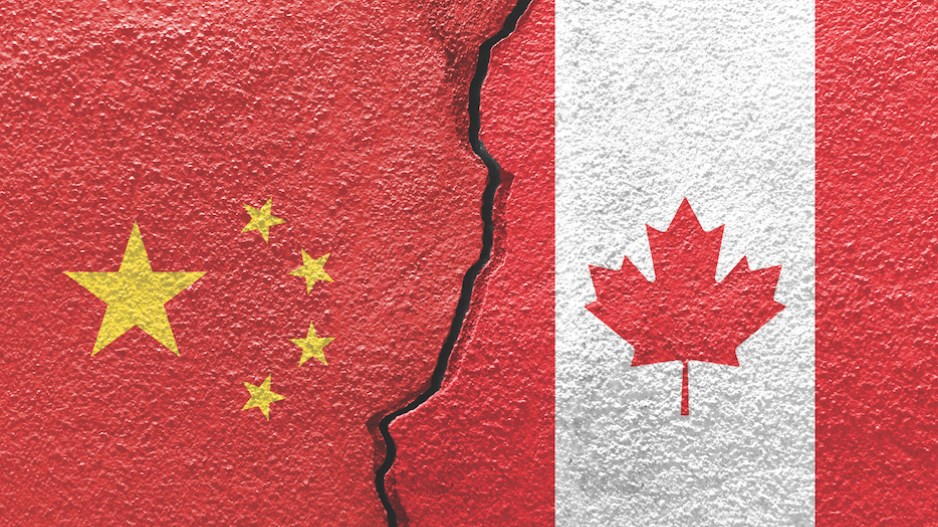In October 2012, a survey I conducted asked Canadians about the proposed takeover of Calgary-based oil and gas company Nexen Inc. by China’s state-owned CNOOC Ltd. At that time, a majority of Canadians (58%) believed the federal government should block the transaction – a proportion that rose to 63% in Alberta.
Supporters of all three main federal parties voiced reservations about the deal. In British Columbia, opposition to CNOOC’s takeover of Nexen outranked support by a stunning 10-to-one margin (69% to 7%).
Across the country, 78% of respondents agreed with the idea that foreign governments should not be able to control resources on Canadian soil. Their anxiety did not matter much, as two months later, in December 2012, the Conservative federal government approved the takeover.
John Manley, president of what was then known as the Canadian Council of Chief Executives (now the Business Council of Canada), stated that Ottawa’s decision would “safeguard the national interest while ensuring that Canadians continue to reap the benefits of a welcoming approach to foreign investment.”
Since then, CNOOC’s activities in Canada can be regarded as disappointing. The company is responsible for one of the largest bitumen spills in Alberta’s history and walked away from a liquefied natural gas development in British Columbia valued at $20 billion. A severe bitumen spill and an abandoned project are not exactly “benefits to reap,” as Manley envisaged in 2012.
Seven years later, Canadians are being asked once again to look at China as a possible contributor. Now the issue is technology, as Canada begins to plan the development of the 5G (or “fifth generation”) mobile networks, to provide Canadians with larger data capacity and faster connections.
In February, Research Co. measured the early reaction from Canadians to the arrest of Huawei Technologies Co. Ltd. chief financial officer Meng Wanzhou in Vancouver following an extradition request from the United States. Public opinion was favourable to the actions of the federal government, troubled by Huawei’s potential involvement in 5G and skeptical about establishing closer ties with China.
A lot has happened since February, including China’s continued confinement of two Canadians – Michael Kovrig and Michael Spavor – on espionage allegations, China banning imports of Canadian canola, pork and beef, a barrage of disparaging statements from China’s Foreign Ministry and, most recently, an interview with Meng’s father, Huawei CEO Ren Zhengfei, published in the Globe and Mail.
At times, Ren’s interview reads like another press briefing from his country’s Foreign Ministry, criticizing Canada’s federal government for not being “smarter” in rejecting an extradition request from the United States. But he also comes across as a savvy investor, arguing that Canada has “very bright people, [but not] enough people.”
Earlier this month, Research Co. asked again about Huawei and China. In the latest countrywide survey, 72% of Canadians agree with the way Canadian authorities have acted in the Meng case. This represents a nine-point increase since February.
Liberal Party of Canada voters from 2015 are decidedly happy with Ottawa’s performance on this file (86%), but majorities of those who voted for the New Democratic Party (72%) and the Conservative Party of Canada (59%) are also lauding the federal government’s course of action.
Perhaps more striking is that only 17% of Canadians think Canada should allow Huawei to participate in the development of Canada’s 5G mobile networks. Opposition to the idea now stands at 68%, up 11 points since February. Simply put, there is no demographic in the country that currently endorses Huawei becoming a partner on 5G. In British Columbia, aversion to Huawei’s contribution reaches a staggering 81%, by far the highest across all regions.
In addition, two-thirds of Canadians (67%) say Canada should not work to establish closer ties with China. Skepticism is highest among men (75%), Canadians aged 55 and over (85%) and residents of Manitoba and Saskatchewan (73%).
Almost seven years ago, Canadians expressed suspicion about inviting the Chinese government to Canada’s natural resource sector. The Nexen takeover did not go as originally anticipated. Now, in a world where concerns over privacy and data collection are at a peak, perceptions of further Chinese involvement on Canadian soil have evidently soured.
In 2012, 58% of Canadians said “No, thanks” to Nexen’s takeover. In 2019, 68% are saying “No, thanks” to Huawei as a 5G developer. We will have to wait and see if the current federal government behaves differently than its predecessor when it comes to China. •
Mario Canseco is president of Research Co.
Results are based on an online study conducted from July 6 to July 9, 2019, among 1,000 adults in Canada. The data has been statistically weighted according to Canadian census figures for age, gender and region in Canada. The margin of error – which measures sample variability – is plus or minus 3.1 percentage points, 19 times out of 20.




